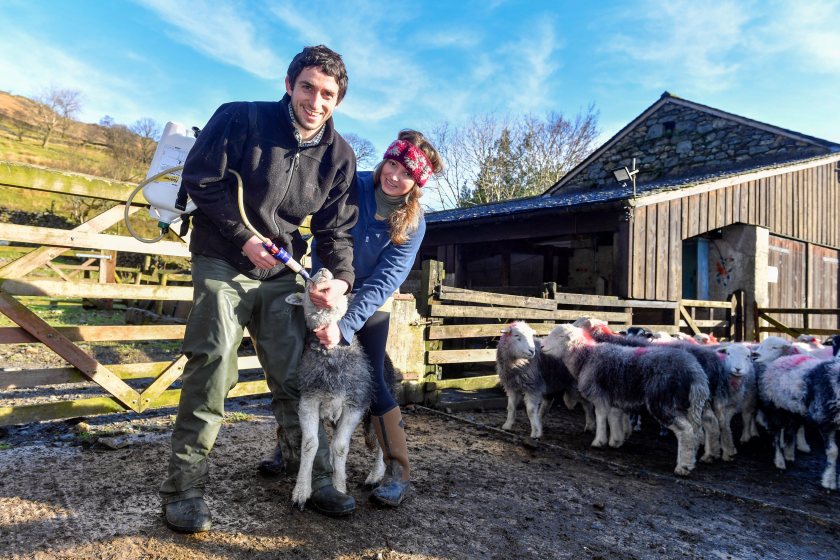
A young couple say they are securing the long-term future of their traditional hill farm by heavily diversifying following the post-Brexit shakeup of subsidies.
Dan Simpson and Ruby Cappleman, who run Seatoller Farm at Borrowdale, said their new campsite was key to sustaining the farm for the future.
They said this was particularly true given the removal of subsidies, with recent evidence showing the negative impact this is having on small hill farms.
Delinked payments are the way the Defra is issuing direct payments between 2024 and 2027. They replaced BPS, which ended in 2023.
But as the modelling shows, the current post-Brexit Environmental Land Management scheme (ELM) offer falls short of providing a viable future for many upland businesses.
Due to this, Dan and Ruby launched an extensive diversification strategy, including a new campsite, holiday cottage, gift and coffee shop and a pizza barn.
All of this would help ensure their traditional Herdwick and Swaledale flocks continue to graze the fells for generations to come, they said.
“All our diversifications, the pizzas and the shop and campsite are all helping to sustain the farm," Ruby explained.
“We plan our diversifications so they directly link to or help the farm, such as using our own meat for the pizza toppings.
“The shop is there to sell our craft products that my mum and I make from wool, and products like our Herdwick lamb and mint burgers that everyone says are delicious.
"Plus, campers can grab a coffee and a croissant in the morning, which saves them having to make their own breakfast or go off site.”
Dan and Ruby took the tenancy on the farm in 2017 – a National Trust property located in the heart of the Lake District – after it had been held by Dan’s parents for 15 years before that.
When the couple took over the farm, they inherited the campsite and holiday cottage and have worked to build on these with the gift shop and pizza barn.
Farm talks are also provided during the holiday season to help inform and educate any guests wanting to learn about traditional hill farming.
“The campsite has been around for many years," Dan said, "In fact, we had the old tenants’ grandson come in for pizza the other week.
"He is now in his 60s and remembers going round the campsite selling milk from the farm with his grandad when he was a young lad.”
The couple have improved the site by turning the old dairy parlour into a shower block – with the showers located in the cubicles the cows used to stand in to be milked – and putting a freezer for guests to use in the old bottling room.
Dan recommended other hill farmers struggling following to removal of subsidies to diversify, as the two "co-exists so well".
“We love the campsite and it is a great addition to the farm,” he said. “The two compliment each other, rather than get in the way.”
Dan Yates, founder of Pitchup.com, a website which lists farm accommodation, said it was an example of how tourism and agriculture could co-exist, particularly for struggling, smaller hill farms
He said: “Dan and Ruby are a really inspirational couple. They’re making a real success of the farm itself, which in one of the UK’s highest, wettest, and most remote locations, is no mean feat.
“At the same time, they’re providing amazing holiday opportunities for people to get a real taste of Cumbria – both past and present – through the fantastic local produce they supply, and the farm talks where people can learn all about traditional hill farming."
